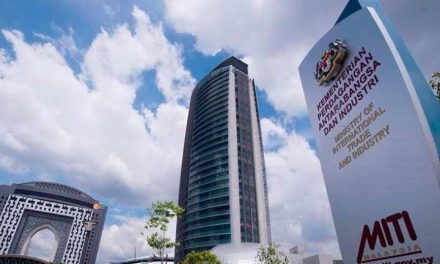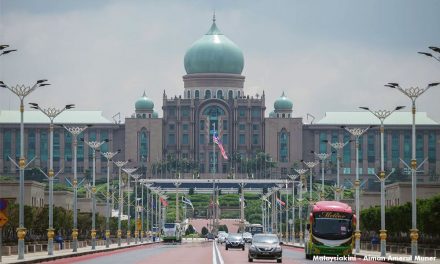Govt to roll out digital ID
The government will introduce a digital identity (digital ID) for use in online services and transactions, says Home Minister Datuk Seri Hamzah Zainudin. “The digital ID will be a form of digital identification and authentication for individuals, using the latest biometric technology such as fingerprint, facial and iris recognition when they conduct matters online. This digital authentication of individuals is essential to avoid identity fraud,” he said. Hamzah said the digital ID, which is expected to be implemented in 2024, will not replace the MyKad as an identification document. Hamzah said the Home Ministry and the NRD had been entrusted to lead this initiative as population data and records are under the custody and jurisdiction of the NRD. In addition to the digital ID, the NRD has also completed the development of System Mortality Integration Data Validation (SPDIM), a smart system partnership it has with the police. (The Star)
Malaysia’s consumer spending to begin recovery in 2022, says Fitch
Fitch Solutions Country Risk & Industry Research has forecast household spending in Malaysia to grow by a real rate of 5.1% over 2022 as consumers recover from two years of contraction in spending levels. In its Malaysia 2022 Consumer Outlook report, Fitch said spending will follow the wider economic recovery as higher vaccination rates over the first half of 2022 (1H22) allow for more localities to lift restrictions that have hampered retail sales. The research house also highlighted several risks to the outlook over 2022, including elevated inflation and the possibility of new Covid-19 variants. “We note, however, that the recovery will be rapid enough to total RM915 billion (US$218 billion) in 2022, building slightly on the figure recorded pre-pandemic (2019),” it said. Fitch said its consumer spending forecast is in line with its country risk view that the wider economy is forecast to grow by 5.5% over 2022. (The Edge)
Creeping complacency could undo efforts to suppress Covid-19
Increasingly apparent complacency among Malaysians towards Covid-19 could expose the country to new waves of infections, doctors have warned despite the declining number of new cases reported daily. Experts said the complacency was also creeping in before the country has seen the possible ramifications of reopening virtually all sectors of the economy. Among others, they said Malaysians have become less and less concerned about bringing unvaccinated children and other vulnerable groups out unnecessarily, such as for window shopping at malls or to dine in at restaurants. Some countries have seen Covid-19 become resurgent as they rolled back restrictions. “We cannot afford to have another wave hitting us,” said Malaysian Medical Association president Dr Koh Kar Chai. Previously, Health Minister Khairy Jamaluddin also expressed worry over the growing disregard for the preventive SOPs, and urged Malaysians to keep up compliance, especially with regards to wearing face masks. (Malay Mail)
Malaysia facing labour shortage
There are many jobs available for Malaysians as employers urgently require workers in certain critical sectors, such as manufacturing and construction, as the economy recovers from the pandemic. Employers are urging the government to resolve labour woes quickly in these sectors as the economy recovers after almost two years of on-off operations. National Chamber of Commerce and Industry of Malaysia (NCCIM) president Datuk Low Kian Chuan said the worker shortage was caused by expiring foreign workers’ permits, poaching of workers by other sectors as well as the “open and shut” standard operating procedures during the various movement control orders. The NCCIM’s Quick Take Survey, covering 835 companies, reported a shortage of 77,721 workers, with the manufacturing sector requiring up 77.1% of the total manpower needed, followed by the construction sector (11.2%) and other services (8.9%). The freeze on new intake of foreign workers had been extended until the end of 2020. (The Star)
U.S. will accept mixed doses of vaccines from international travelers
The U.S. Centers for Disease Control and Prevention (CDC) said last week that it will accept mixed-dose coronavirus vaccines from international travelers, a boost to travelers from Canada and other places. The CDC said last week that it would accept any vaccine authorized for use by U.S. regulators or the World Health Organization (WHO). The new vaccine requirements for foreign nationals traveling to the United States will begin Nov. 8 for visitors crossing at land borders as well as international air travelers. “Individuals who have any combination of two doses of an FDA approved/authorized or WHO emergency use listed COVID-19 two-dose series are considered fully vaccinated,” it said. The CDC plans to answer other questions and release a contact tracing order for international air visitors by Oct. 25. (The Star)






